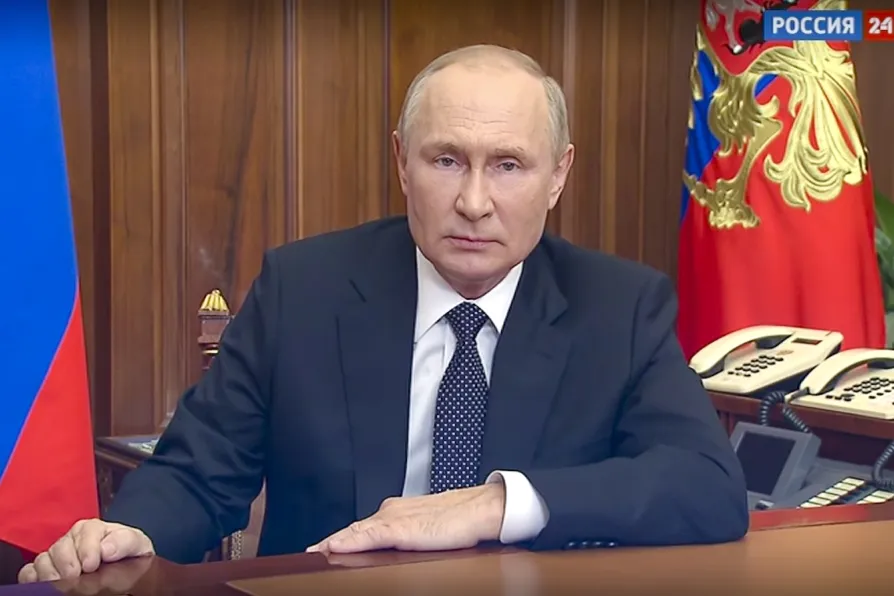CHRISTOPHE DOMEC speaks to CHRIS SMALLS, who helped set up the Amazon Labor Union, on how weak leadership debilitates union activism and dilutes their purpose

 NEW DEPTHS: Vladimir Putin announced a partial military call-up in his address yesterday, Wednesday September 21
NEW DEPTHS: Vladimir Putin announced a partial military call-up in his address yesterday, Wednesday September 21
IT IS hard to imagine Russian President Vladimir Putin getting much in the way of sleep right now. With Ukraine having seized the initiative and momentum after six months of conflict — six months that neither Putin nor his military advisers thought it would take to crush Ukrainian resistance to the Kremlin’s “special military operation” — Putin is being taught a salient lesson in the perils of hubris when it comes to waging war.
In his much-anticipated address to the Russian people — and by extension the world — in the aftermath of a stunning Ukrainian counteroffensive that succeeded in retaking 2,000 square miles of territory back from Russian control in north-east Ukraine earlier this month, Putin has claimed that Russia is “fighting the entire Western military machine.”
Here, at least, he does have a point, what with the West coming to the aid of Ukraine with huge amounts of aid in military equipment, training, logistics and planning over these past six months. However, that he and his military chiefs failed to anticipate or factor this probability into their plans at the outset constitutes a major blunder, one that has been paid for in the lives of thousands of Russian troops.

Meanwhile, Nato foreign ministers debate increased weapons spending as police investigate the bloc’s purchases of military equipment

As Britain marks 80 years since defeating fascism, it finds itself in a proxy war against Russia over Ukraine — DANIEL POWELL examines Churchill’s secret plan to attack our Soviet allies in 1945 and traces how Nato expansion, a Western-backed coup and neo-nazi activism contributed to todays' devastating conflict











